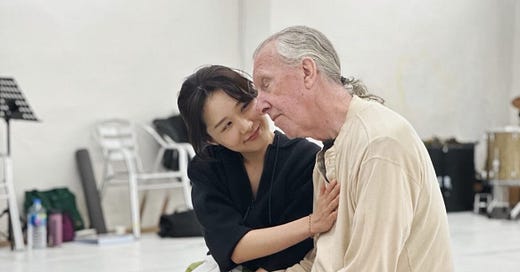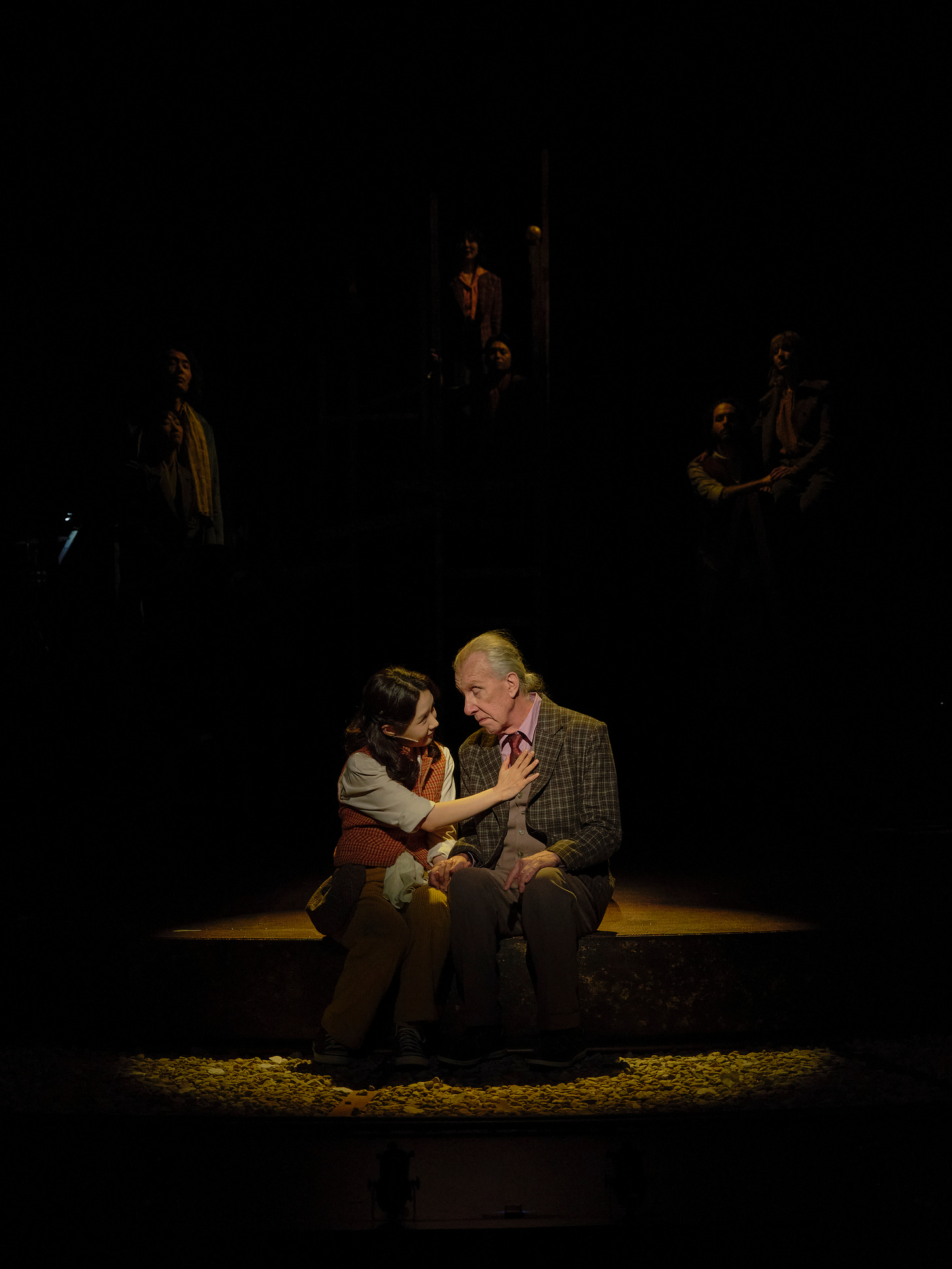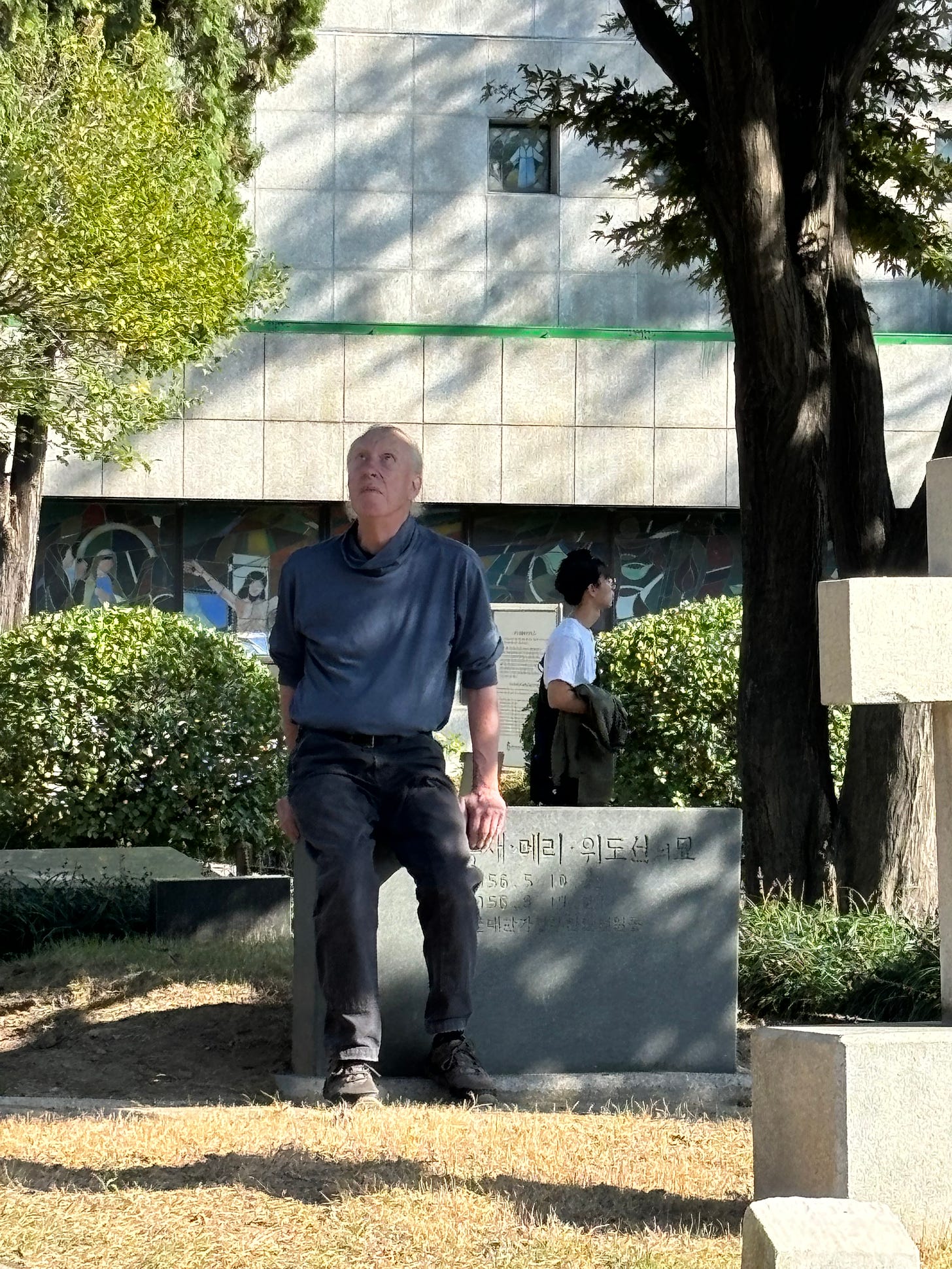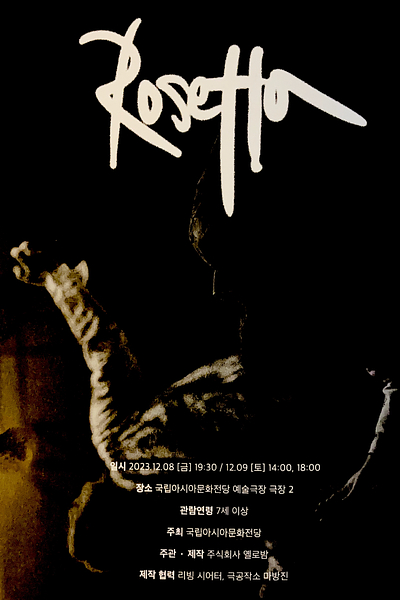Rosetta "Lives" On In Korea
The Living Theatre returns to S. Korea on a "mission" - Professor and scholar Miy-he Kim (Kim Miy-he) writes about the world premiere of "Rosetta" at the National Asia Cultural Center
To answer the question of “why?” from Tom’s last performance with the company, as a microcosm of his lifelong commitment to The Living, we can find one answer from Kim Miy-he, a preeminent theatre professor of both international and American theatre in South Korea.
Miy-he Kim (Kim Miy-he) is Professor Emeritus at Hanyang University in Seoul and has served as the president of the Korean Theater Studies Association and chairman of the Korean Arts Management Service, contributing significantly to the growth and recognition of Korean theater on the global stage. She also translated all 23 of Henrik Ibsen’s plays for the Korean language; in 2023 she was presented with the Royal Norwegian Order of Merit for her contributions in making Ibsen’s work known around Korea. Professor Kim was in attendance in early 2023 when Yellow Bomb hosted a press preview day at their studio in Seoul, and she also attended the showcase performance at the National Asia Cultural Center (ACC) in January 2023. She was kind enough to write a short essay on the show and The Living Theatre’s involvement in it for the program distributed at the world premiere of Rosetta (again at the ACC) in December 2023. We have taken the liberty (with Professor Kim’s permission) to translate her piece into English and you can read it below - if you’d like to read her piece in the original Korean, download the show program in full at the bottom of this article (pg 9).
Rosetta seen again at the National Asia Cultural Center
by Kim Miy-he, Professor Emeritus, Hanyang University
On January 6, 2023, a press conference and practice scenes were held at the Yellow Bomb practice room, followed by a pilot performance of Rosetta at ACC on the 13th and 14th. Rosetta is a story about the diverse experiences of Rosetta Sherwood Hall, an American medical missionary who was dispatched to Joseon during the late Joseon Dynasty in the mid-19th century and engaged in various activities to promote the rights and interests of the ‘weak’, especially women who took oppression for granted. It is a play about multi-layered difficulties. She was the person who established a hospital, trained (female) medical personnel, opened a school for the disabled, and developed Korean Braille in Joseon, a country where Western civilization was at a low level.
However, the reason Rosetta is interesting is not just because it deals with the life of a character named Rosetta. Planning and collaboration are more interesting. It is part of ACC's international joint creation & production performance project, and it is noteworthy that actors from Mabangzen (a theater company based in Seoul) and The Living Theatre (which has gained a global reputation in American theater history) collaborated in planning with producer Yellow Bomb.
It is also important to note that members of The Living Theatre (founded by Judith Malina and Julian Beck in 1947) are participating as actors in Rosetta. This is because the content of Rosetta sheds light on Koreans who practiced ‘love.’
Todd London, longtime artistic director of New Dramatists in New York and a historic laboratory for American playwrights, said The Living Theatre's work in the history of American theater is "play based on love - the love of the theater, the love of peace, the love of the relationship between men and women…Love, and love for something like a transformation of our ideal humanity,” in his book An Ideal Theater: Founding Visions for a New American Art. In order to incorporate this 'love' into the play, the Living Theatre boldly broke away from the conventional realism that was particularly prevalent in the United States and conducted performances consisting of various formal experiments, such as group creation, action size, and improvisation. For that reason, Todd London also asks the question, “Has there ever been a more passionate American theater company, or one with more extreme experiments, than the Living Theatre?”
The Living Theatre is described in many publications as an ‘off-Broadway’ theater company. The reason is that it was founded in the 1940s. However, in my previous book, Beyond Broadway, I classified this theater company as belonging to ‘Off-Off-Broadway.’ This is because The Living Theatre left an echo in European theater through its collective creation, formal experimentation, audience participation, and modification of acting techniques. Moreover, the term 'off-off' can be used for all non-linear theater that rejects a linear narrative, from avant-garde, ensemble theater, environmental theater, single work, guerrilla theater to image theater.
In Rosetta, I discovered many of the elements that Living Theatre pursued. The multi-role format, in which all actors take on different characters, cannot be said to be a new experiment, but three Living Theatre memberswho visited Korea and five Korean actors are able to tell the stories of Rosetta's difficult life, which are woven into episodes. I was impressed by the fact that they gave vitality through energetic and passionate acting.
Thomas Walker who has a long history at The Living Theatre, was the oldest actor and showed his passion as an actor with all his might, which also impressed the audience.
(Thomas Walker passed away in January 2024. After hearing the news of his passing, Professor Kim wrote:
“I am so sorry and so sad, that Tom passed away.
"Rosetta" was his last production as an actor.
I was so impressed that he was so active an the stage, forgetting his age!
If you can, please give my condolences to his family.”)







Beautiful. Love in action. Xo